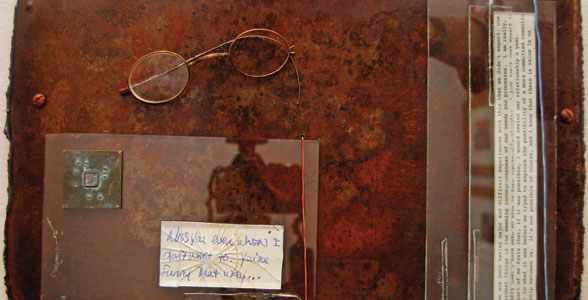By Whitney Holmes
“For exactly forty years, I was a nurse. Over those forty years I did many things. I got my bachelor’s degree, my master’s, my Ph.D. But my devotion was to Alzheimer’s patients. That was my specialty.”
After caring for people who suffered from memory loss for four decades, Peggy McWilliams knew the warning signs of Alzheimer’s disease. So when she began having difficulty recalling common things, she knew this could not be attributed simply to the aging process.
“I was forgetting things I shouldn’t be forgetting. For example, I had to look up the recipe for cornbread. I have known that recipe for years,” she said. “So I began writing everything down and I noticed the longer it went on, the more I felt my memory was being distorted.”
She knew she better act fast. The longer she waited, the more advanced the disease would become.
Luckily for McWilliams, researchers at UT, her alma mater, were developing a new tool that enables anyone—with or without a medical degree—to screen for the disease.
The ALZselftest to screen for cognitive problems was developed by a team that includes Dr. John Dougherty, medical director of the Cole Neuroscience Center at UT Medical Center in Knoxville; his son and business partner, Andrew Dougherty; and Rex Cannon, adjunct research assistant professor of psychology at UT Knoxville.
The ALZselftest is a brief interactive online test to assess impairments in functional cognitive domains—sort of a fitness test for the basic functions of thinking and processing information that are affected by Alzheimer’s and milder forms of cognitive impairment. People who think they might have Alzheimer’s or dementia can take the test online at www.alzselftest.com or at their doctor’s office. It takes about 20 minutes and costs $19.95.
McWilliams took the test at her doctor’s office and was diagnosed with the very early stages of dementia. Now she takes medication that, although it can’t cure the condition, can keep it from progressing.
“The medication is working beautifully. It has arrested the disease and it doesn’t seem to be getting worse,” she said.
New research shows the ALZselftest is more than 95-percent effective in detecting cognitive abnormalities associated with Alzheimer’s or dementia. Dougherty emphasizes that the earlier the disease is detected, the sooner its advancement can be halted.
“Early detection is at the forefront of the clinical effort in Alzheimer’s research, and application of instruments like ALZselftest in the primary-care setting is of extreme importance,” Dougherty said. “Sixty percent of Alzheimer’s cases are not diagnosed in the primary care setting, and those delays lead to missed treatment opportunities.”
McWilliams is optimistic that because she took 20 minutes for the ALZselftest, it saved her the rest of her lifetime. “I highly recommend that people stop wondering and worrying. I am so thankful I took the test and am hopeful that I will be able to stay as mentally alert as I am now for the rest of my life.”



